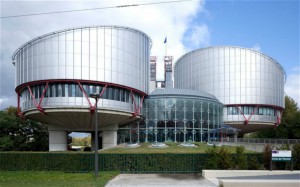European Court of Human Rights (ECHR): A Seven Judge Bench of Paul Lemmens (President), Georgios A. Serghides, Helen Keller, Dmitry Dedov, María Elósegui, Gilberto Felici, and Erik Wennerström unanimously held that the respondent was in violation of Article 11 (freedom of assembly) of the European Convention on Human Rights.
The applicant, Andrey Obote, and six other people had gathered around the Office of the Russian Government in 2009 for a ‘flash mob’. They had their lips covered with adhesive tape and they all held a blank sheet of paper. When the police ordered the group to disperse, the applicant was taken to the police station for asking the reason for the said order. He was charged under the Code of Administrative Offences for failing to give prior notification of a public gathering, as required by the Public Events Act. A court subsequently fined him 1,000 Russian roubles and held that he had taken part in a static demonstration and that he had breached the procedure for public events. It rejected his argument that the flash mob could not be counted as involvement in a public event.
The applicant filed a complaint with the ECHR on 27-10-2009 and complained that the authorities’ putting an end to the flash mob and prosecuting him for an administrative offence had violated his rights under Article 11 of the European Convention.
The Court found that the applicant’s flash mob, as he had described it, was within the notion of a “peaceful assembly” under Article 11 of the Convention. The dispersal of such an assembly and the sanctions against the applicant had, therefore, constituted an interference with his right to freedom of assembly as protected by that same article. The Government had justified that interference by referring to the legitimate aim of the prevention of disorder. However, the domestic judicial bodies had found the applicant guilty in the administrative-offense proceedings, without assessing the level of disturbance caused by the flash mob. They had simply found that the applicant had failed to comply with the prior-notification requirement. Moreover, staging a demonstration without prior authorisation did not necessarily justify interfering with a person’s right to freedom of assembly. It was important that public authorities showed a certain degree of tolerance towards demonstrators who were not violent. The Court found that seven people standing in silence while holding a blank sheet of paper could hardly be described as incitement to violence or represent a threat to public order. Where the sanctions imposed on a demonstrator were criminal in nature, although classified as administrative under domestic law, as in the applicant’s case, they required all the more justification. The Court, therefore, found that the reasons relied on by the State had not corresponded to a pressing social need. Nor had they been sufficient to show that the interference had been “necessary in a democratic society”. There had thus been a violation of Article 11. the Court finally directed the respondent to pay the applicant 4,000 euros (EUR) in respect of non-pecuniary damage. [Obote v. Russia, Application No. 58954 of 09, decided on 19-11-2019]

